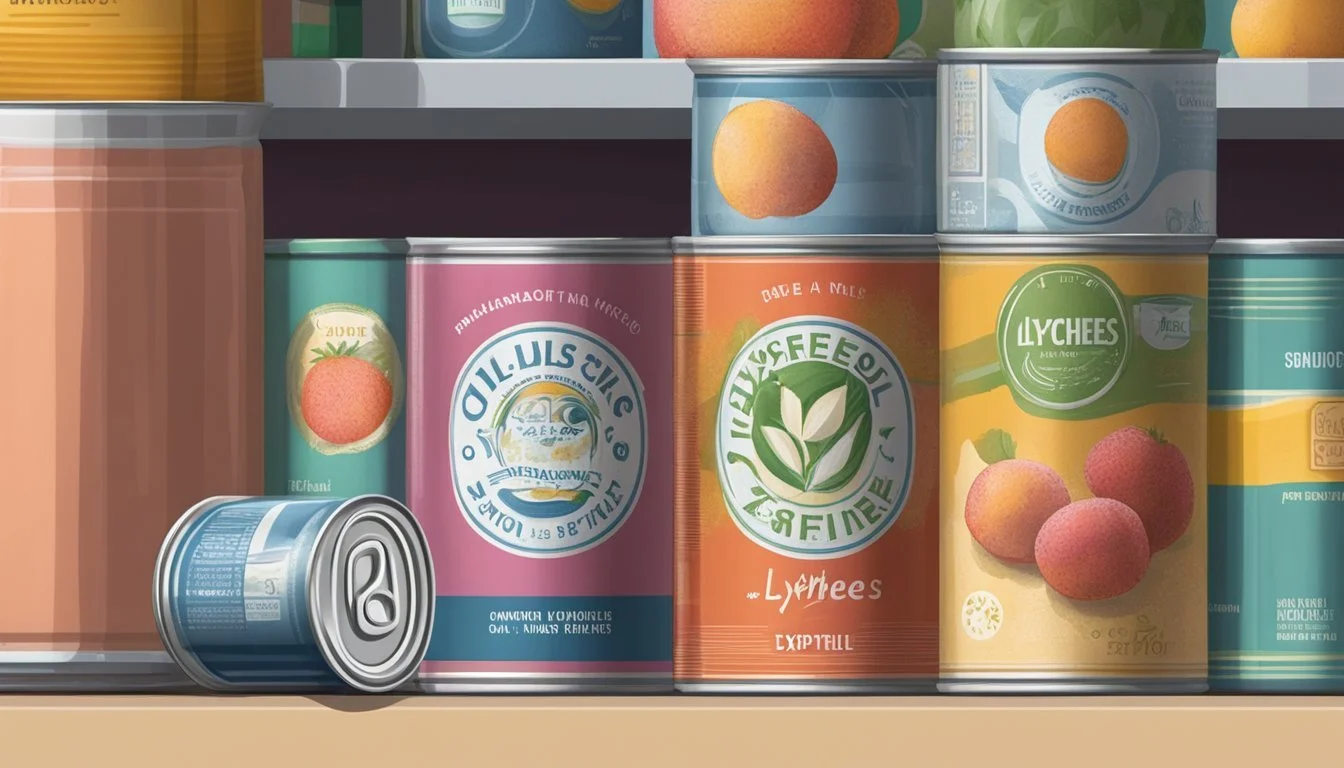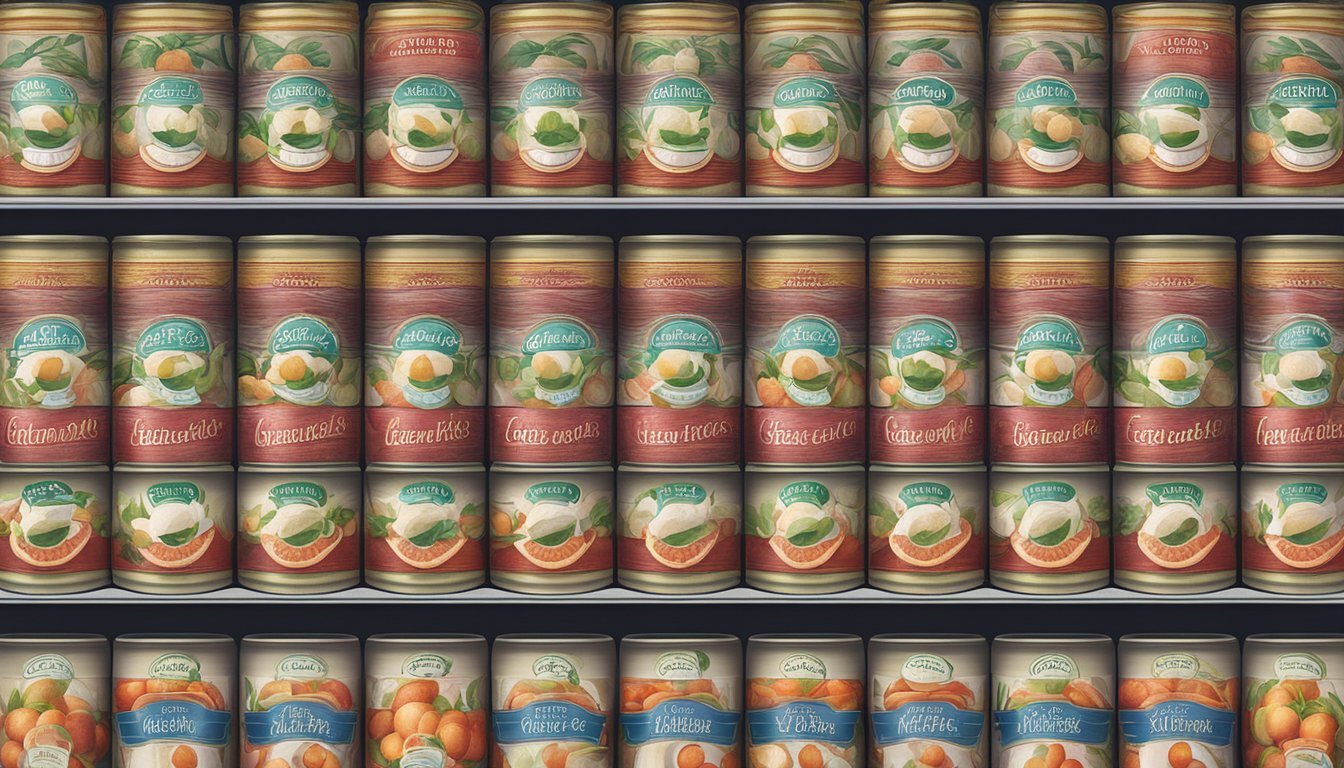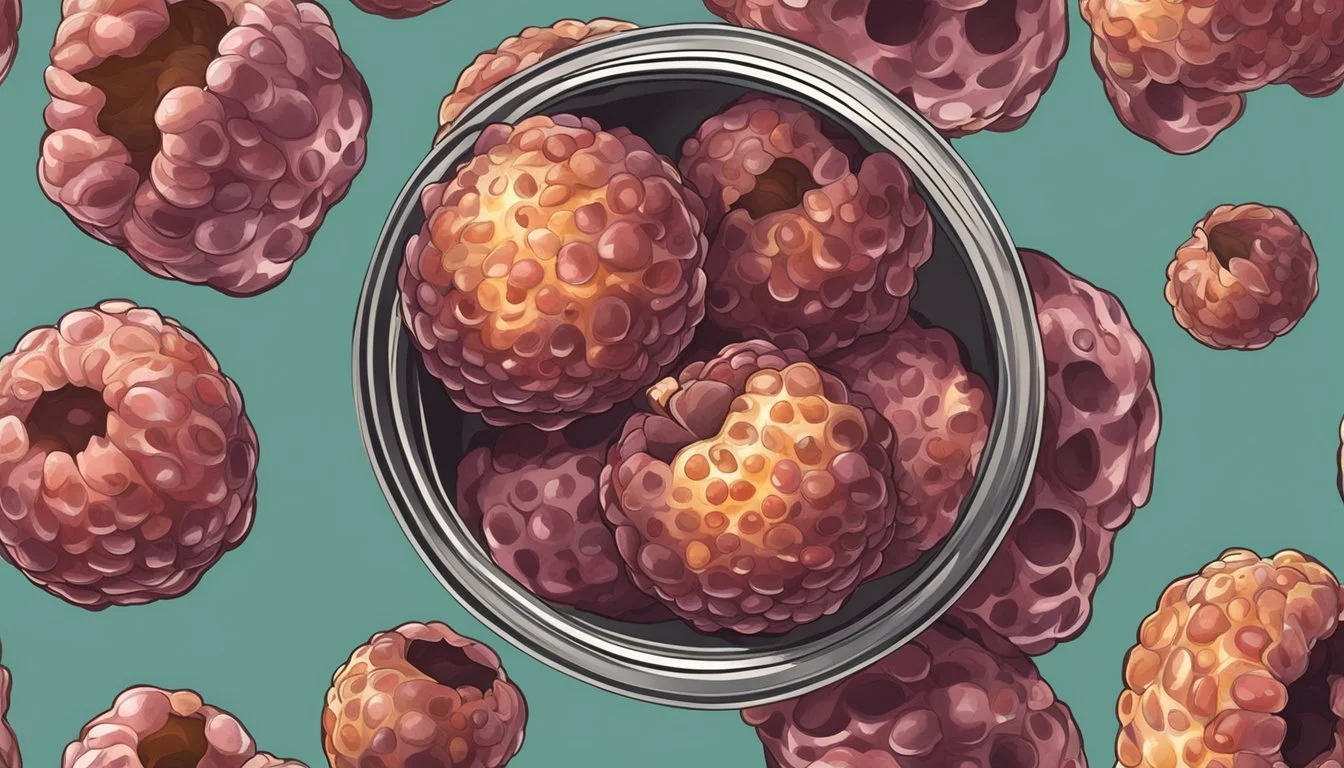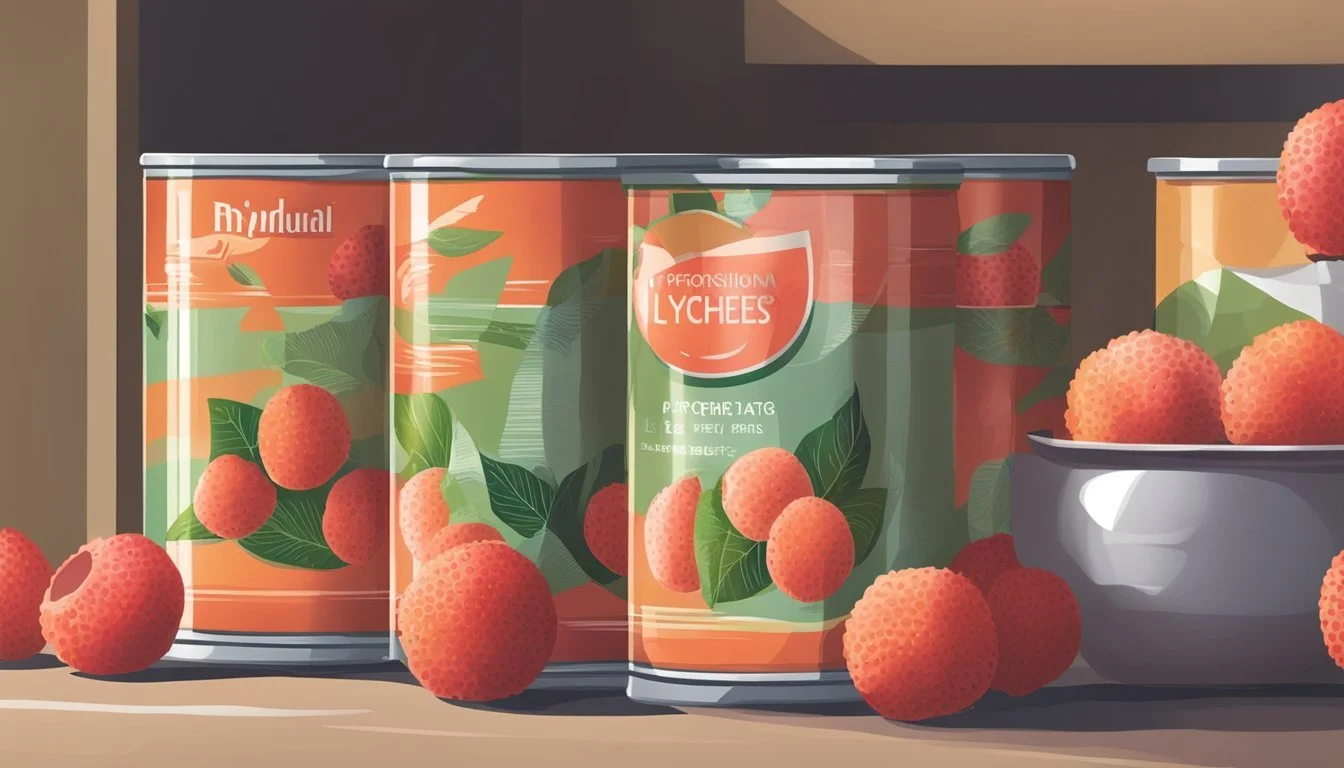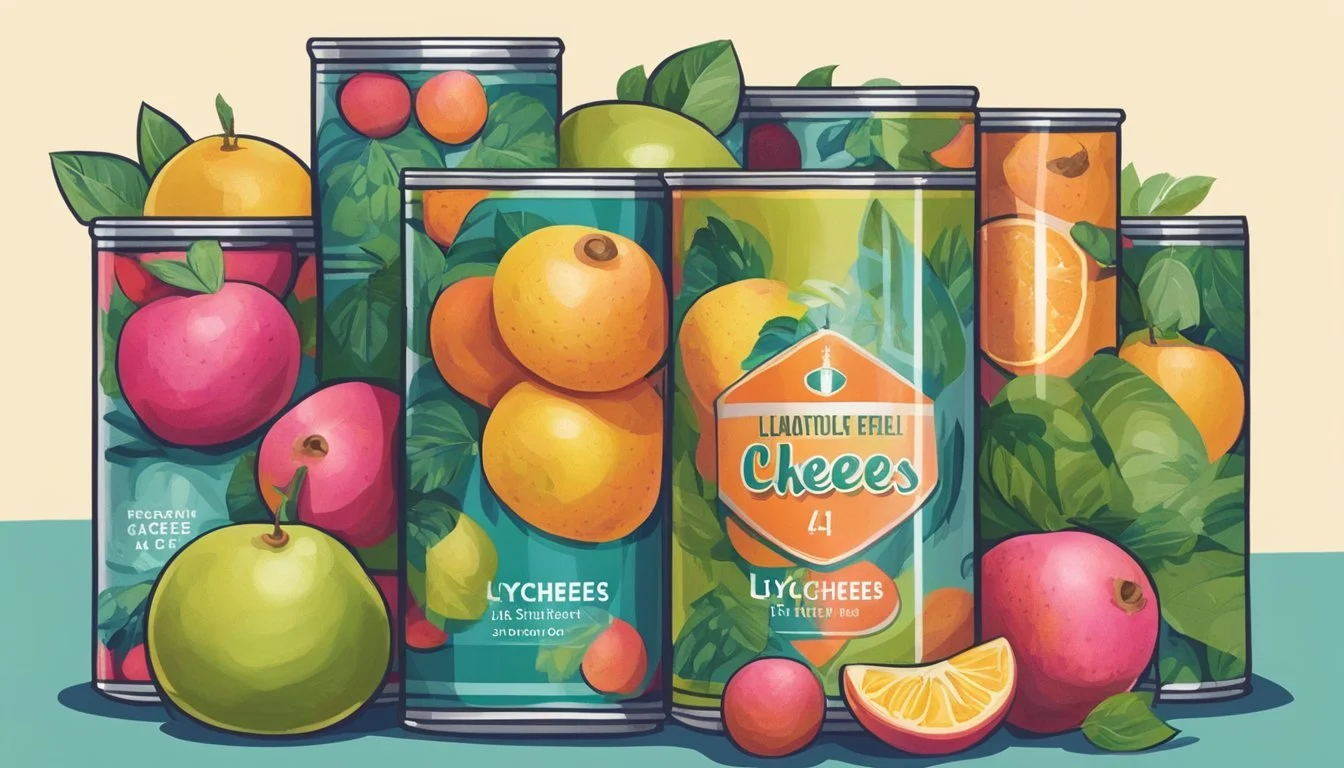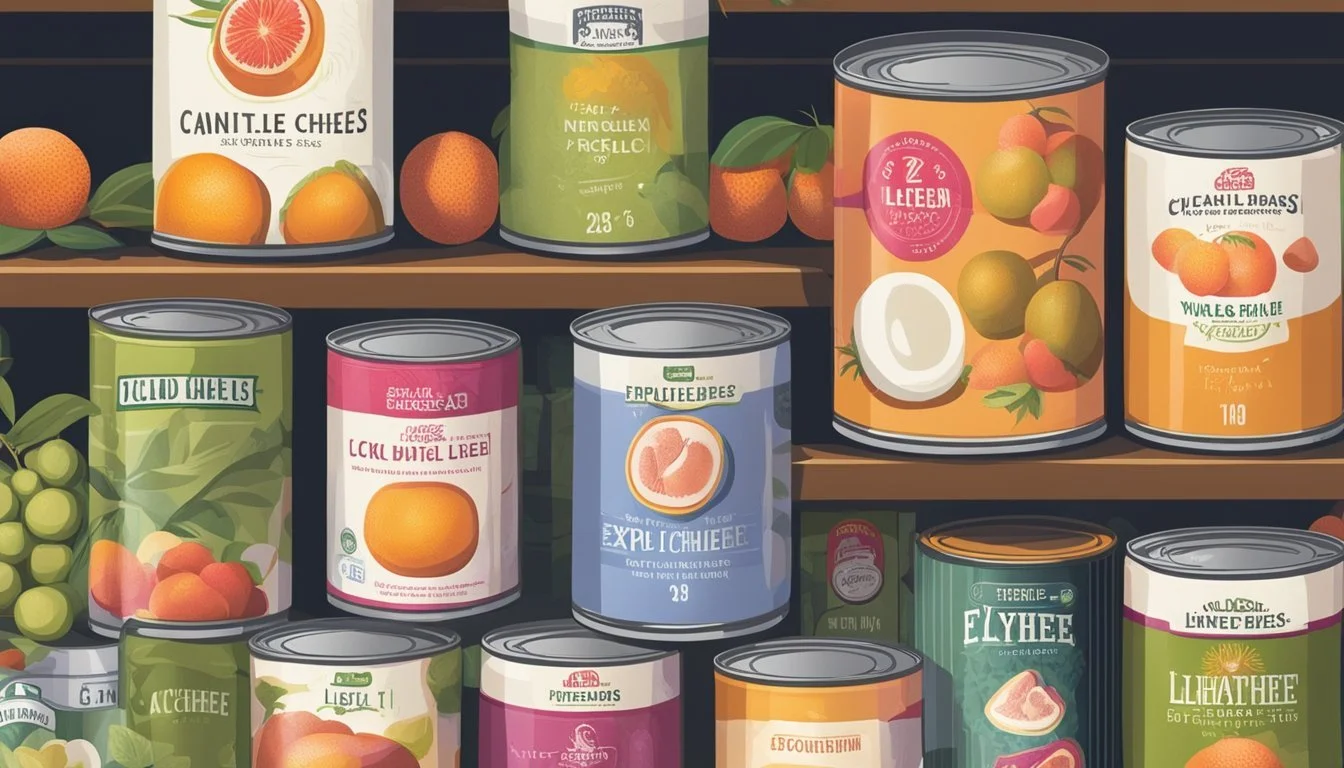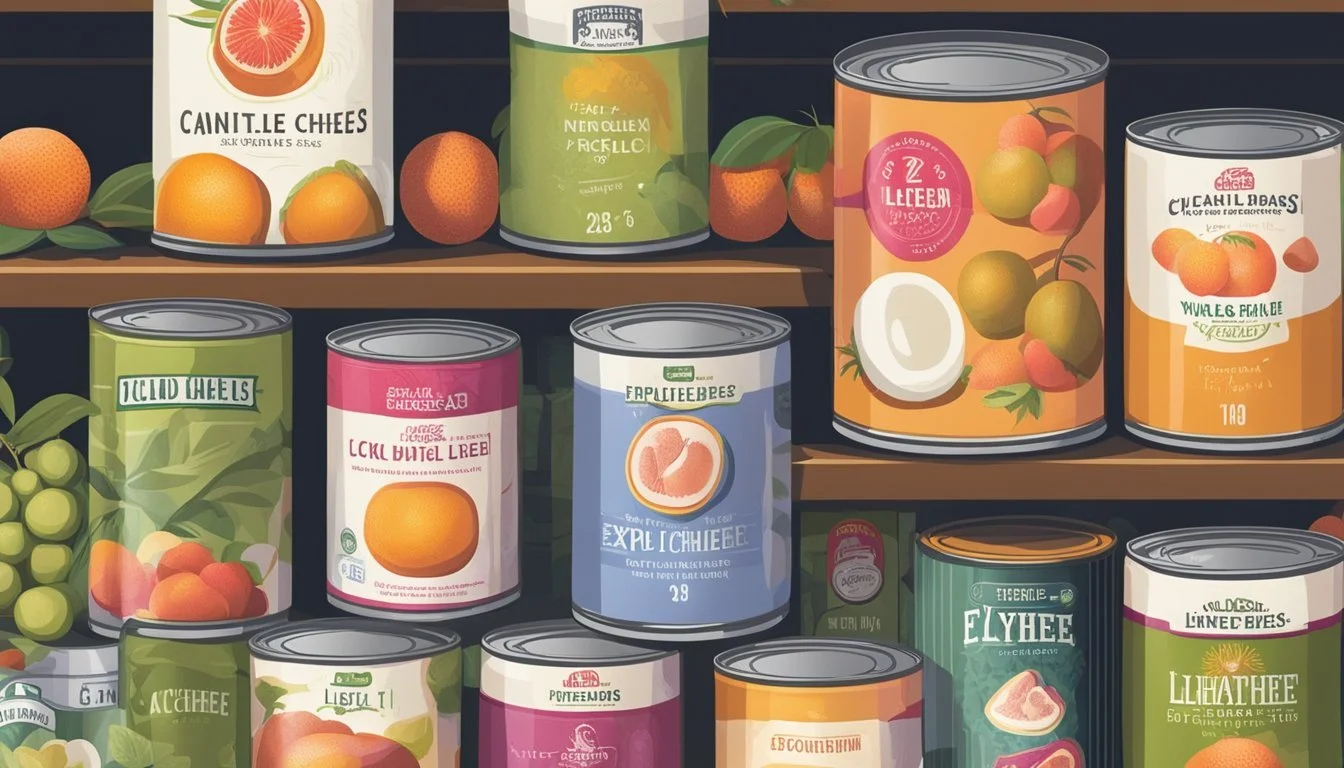How Long Do Canned Lychees Last?
Unveiling Shelf Life and Storage Tips
Canned lychees (how long do canned lychees last?) offer a way to enjoy this exotic fruit year-round, retaining a taste that's reminiscent of fresh lychees. They are especially useful when the fresh fruit is out of season. The shelf life of canned lychees often extends beyond their labeled expiration dates, a characteristic common to many canned goods. When stored properly in a cool, dark place, canned lychees can remain edible for an extended period, typically 1-2 years past the date printed on the can.
It is essential for consumers to inspect canned lychees before purchase and consumption. The integrity of the can affects the longevity and safety of its contents. Cans that exhibit signs of damage, such as bulging, leaks, rust, or deep dents, should be avoided as these issues can compromise the safety of the fruit inside.
When opened, canned lychees should be promptly transferred to a non-metallic airtight container if they are not consumed immediately. The fruit should then be refrigerated and ideally used within a few days to preserve its quality and prevent spoilage.
Understanding Canned Lychees
Canned lychees are a convenient way to enjoy this tropical fruit from the soapberry family, which is native to regions of Southeast Asia, primarily China. Preserved in a sugar syrup, canned lychees offer longevity far beyond their fresh counterparts.
Shelf Life
Typically, canned lychees boast an extended shelf life due to the canning process, which involves sterilization to prevent spoilage. They can often retain their quality up to one year past the printed expiration date on the can, as long as the can remains undamaged and unopened.
Storage Conditions
To maximize their shelf life, cans should be stored in a cool, dry place, away from extreme temperatures and direct sunlight.
Factor Condition for Optimal Storage Temperature Cool and stable Environment Dry Light Exposure Minimal to none Can Integrity Undamaged
Use After Opening
Once opened, any unused lychees should be promptly transferred to a sealed container and refrigerated. Under refrigeration, they typically remain suitable for consumption for up to five to seven days. It's important to ensure that the fruit is submerged in the syrup to maintain its quality.
Nutritional Profile
Preservation doesn't significantly alter the nutritional value of lychees. They remain a source of essential vitamins and minerals, particularly Vitamin C, making them a healthful addition to diets. However, consumers must be aware of the increased sugar content due to the syrup.
Health and Nutrition
Canned lychees, a popular sweet fruit, are rich in nutrients and can be a valuable addition to the diet. They provide a notable quantity of vitamin C, which is crucial for immune function, skin health, and iron absorption. A serving of canned lychees offers a significant percentage of the daily recommended intake of vitamin C, playing an essential role in maintaining overall health.
The nutritional value of canned lychees also includes several other nutrients essential for health. Although the canning process may slightly alter the nutritional content compared to fresh lychees, the fruit still contains valuable amounts of:
Potassium: Important for blood pressure control and cardiovascular health.
Copper: Essential for red blood cell production and heart health.
Vitamin B6: Supports metabolism and brain health.
In terms of protein, lychees offer a small amount, which can contribute towards daily protein requirements. However, they are not a significant source of protein.
When considering blood sugar levels, one should be aware that lychees, including those that are canned, contain sugars. Therefore, consumption should be moderate, particularly for individuals monitoring their blood sugar.
Regarding food safety, canned lychees are generally safe to eat as long as the can's integrity is intact. It's crucial to avoid cans that are bulging, leaking, or deeply dented. Consumers should store canned lychees in a cool, dark place to maintain their safety and nutritional value.
In summary, canned lychees are a nutritious option that can be included as part of a balanced diet, keeping in mind general food safety practices to ensure they are safe to eat.
Storage Guidelines
Canned lychees offer a convenient way to enjoy this tropical fruit out of season, but proper storage is essential to maintain their quality and extend their shelf life.
Pantry Storage
For unopened cans of lychees, the pantry should be cool and dark, with a consistent temperature. They typically last between 1 to 2 years when stored properly, but always refer to the expiration date on the label as a precise guide. Keeping the cans away from drastic temperature changes ensures the contents remain at optimal quality.
Refrigeration
Once opened, canned lychees need to be refrigerated if they are not consumed immediately. Place the fruit in an airtight container to prevent moisture and air from affecting quality. Refrigerated lychees in a container can last for up to 5 to 7 days while maintaining freshness.
Freezing Lychees
For longer storage, freeze lychees by removing the syrup and placing the fruit in a freezer bag or an airtight container. This method can keep lychees fresh for several months. The freezing temperature should be kept constant to preserve taste and texture.
Storage After Opening
After opening a can of lychees, any remaining fruit should be transferred to an airtight container to minimize exposure to air and moisture, which can degrade the lychees quickly. Remember to label the container with the current date to keep track of the refrigerated shelf life.
Signs of Spoilage
When assessing canned lychees for spoilage, several visual and olfactory indicators can raise alarms. These signs not only point to diminished quality but also to food safety concerns that can lead to food poisoning.
Mold: The presence of mold is a clear sign of spoilage. It may appear as fuzzy spots or discolored patches on the lychees or even on the surface of the syrup inside the can.
Odor: Lychees should have a sweet, fragrant smell. Any off-putting, sour, or fermented odors indicate that the lychees have deteriorated and may harbor harmful bacteria.
Texture: Lychees should maintain a firm texture. If they feel overly soft or mushy when pressed, this suggests that rot has set in, compromising the fruit's quality.
Appearance: Fresh canned lychees retain a translucent, pearly color. Any brown or dark spots signify that the lychees have likely gone bad.
Can Integrity: Swelling, leaks, rust, or damage to the can itself can contribute to the spoilage of the contents. Compromises in the can's integrity can introduce bacteria or air that speeds up the spoilage process.
Here is a quick reference:
Indicator Spoilage Sign Mold Visible growth or discoloration Smell Sour or unusual odors Texture Softness or mushiness Appearance Brown or dark spots Can Integrity Swelling, leaks, or rust
Preparation and Usage
Prepping and using canned lychees involves easy steps but requires attention to detail to maintain their unique flavor and texture.
Prepping Canned Lychees
Before using canned lychees in any dish, one should drain the syrup and rinse the fruit with clean water. This helps to get rid of any excess syrup that may be clinging to the lychees, which could otherwise alter the intended flavor profile of a recipe. The lychees are often already peeled and seeded, making them convenient to use straight out of the can. The texture of canned lychees is soft, and they should be handled gently to maintain their shape and integrity.
Incorporating into Recipes
Canned lychees offer a sweet and aromatic flavor that complements a wide range of recipes. They can be chopped and added to fruit salads, blended into smoothies, or used as a topping for desserts. The fruit's natural sweetness also makes it an excellent addition to drinks and cocktails. When incorporating canned lychees into recipes, it's important to consider their ripe, floral notes which pair well with other tropical flavors.
Safety Considerations
When considering the longevity of canned lychees, safety is paramount. One must ensure the absence of defects and maintain proper storage conditions to mitigate risks of food poisoning and maintain food safety.
Checking for Defects
Before consuming canned lychees, one should always inspect the can for any signs of damage. Defects to look for include:
Rust: Can compromise the can's integrity and contaminate its contents.
Dents: Severe dents, especially near seams, can lead to seal failure and bacterial contamination.
A can showing such imperfections should be discarded to ensure hygiene and consumer safety.
Risks of Improper Storage
Improper storage of canned lychees can lead to spoilage and health risks. Key storage mistakes include:
Temperature fluctuations: Canned food should be stored in a cool, stable environment to prevent spoilage triggered by heat.
Exposure to moisture: Moisture can lead to rust and compromise the can's seal.
Should the storage be compromised, the canned lychees may emit gas, or the contents may have an off odor, indicating bacterial growth. To promote safety, consumers should always adhere to the expiration date and practice good hygiene when handling canned foods to prevent foodborne illness.
Maximizing Shelf Life
To ensure that canned lychees retain their quality and edibility, one should observe the following storage practices:
Check Expiration Date: Always note the expiration date on the label before purchase. While canned lychees may last past this date, it is a good gauge for quality retention.
Cool and Dark Storage: Store canned lychees in a cool and dark place such as a pantry. The ideal temperature range is between 50°F and 70°F to slow the deterioration process.
Avoid Moisture: Ensure the storage area is dry as excess moisture can contribute to the rusting of cans, which might compromise the seal and lead to bacteria growth and spoilage.
After Opening: Once opened, transfer the lychees into an airtight container if not consumed immediately. This practice limits exposure to air and should be refrigerated to prolong shelf life.
Storage Aspect Recommendation Location Pantry or cupboard away from light Temperature 50°F - 70°F (10°C - 21°C) Moisture Dry environment Container (Opened) Airtight container Refrigeration (Opened) Necessary to prevent spoilage
It is beneficial to inspect canned goods periodically for signs of damage or rot, such as dents or swelling, which can indicate potential compromise of the food's safety. By following these storage guidelines, consumers can typically enjoy canned lychees well within their shelf life, making the most of their purchases.
Additional Tips
When purchasing lychees from the grocery store, always select the ripest fruits for canning as they provide the best quality for preservation. It is essential to handle the lychees gently to avoid bruising, which could affect their longevity.
Storing Lychees: Before canning, store fresh lychees in the refrigerator. One should place them in a plastic bag or an open container to maintain their condition until they are ready to be canned.
Canning Process: While canning, ensure that all equipment is sterilized to prevent contamination and spoilage. It's advisable to use a high-quality canning process that includes proper sealing to extend shelf life.
After Canning: Once the lychees are canned, store the sealed containers in a cool, dark place. Avoid extreme temperatures and exposure to light, which can degrade the quality of the fruit.
For those looking to enjoy canned lychees as a snack, consider the following:
Opened canned lychees should be refrigerated and consumed within a week for optimal freshness.
Discard any cans that show signs of damage, swelling, or leakage, as this indicates potential spoilage.
By following these additional tips, one can help ensure that their lychees remain a delicious and safe snack for as long as possible.
Canned Lychees in Different Cultures
In Asia, particularly Southeast Asia and China, lychees are cherished as a tropical fruit that embodies the sweetness and richness of the region's diverse flora. Canned lychees retain much of the fruit's distinctive flavor, making them an integral pantry item across these cultures. They are commonly used in a variety of desserts and drinks, offering a taste of the tropics year-round.
The use of canned lychees in Asian desserts is extensive. They are often found in fruit cocktails or served with a syrup in bowls as a simple yet satisfying sweet treat. Chinese cuisine incorporates them into tangyuan, a glutinous rice dumpling often enjoyed during the Lunar New Year celebration.
In Southeast Asia, canned lychees serve not only as a dessert ingredient but also as an essential addition to drinks. They provide a refreshing twist when added to iced beverages or tropical cocktails, with their syrup used to sweeten the concoction further.
Canning technology has allowed the lychee to transcend seasonal boundaries, thereby integrating into the culinary traditions of various regions. While fresh lychees have a limited season, the canned version ensures a year-round presence in the kitchen. This availability makes it a staple in households as well as in the food industry, where consistent supply is crucial.
Culture Use of Canned Lychees China Desserts, New Year delicacies Southeast Asia Drinks, cocktails, fruit salads
Canned lychees highlight the globalization of food, where a fruit specific to a locale becomes part of the world's shared pantry, maintaining its cultural significance while adapting to new culinary landscapes.
Environmental Impact
When examining the environmental impact of canned lychees, one must consider various factors. Canned food, in general, has distinct implications for sustainability, from production to disposal.
Production Phase: The canning process consumes energy, predominantly from fossil fuels. It involves the use of machinery for picking, processing, and packaging the lychees, which releases greenhouse gases (GHGs). Sunlight does play a role in the growth of the fruit itself, but the energy used later negates much of the environmental benefits.
Transportation and Storage: Canned lychees are transportable over long distances due to their extended shelf life. However, transportation contributes to carbon emissions. They require less energy for storage, as they do not need refrigeration, thereby reducing their environmental footprint in this stage.
Waste Generation: Once consumed, the cans become waste. If not properly recycled, they contribute to landfill mass. Recycling the cans mitigates this impact, saving energy and resources by reducing the need for new raw materials.
Lychee Canning and Waste Stats:
Recycling Rate: Estimates suggest that steel cans have a recycling rate of about 70-90%.
Energy Savings: Recycling metal cans can save as much as 74% energy compared to producing new ones.
Impact on Vegetables and Fruits: The canning process for fruits like lychees often requires less preservatives compared to some vegetables, due to their natural acidity that helps preserve them. This reduces the amount of chemicals introduced into the environment.
In sum, the environmental impact of canned lychees encompasses energy use, GHG emissions, waste production, and potential chemical usage. Through recycling and efficiency improvements, the overall footprint can be minimized.


